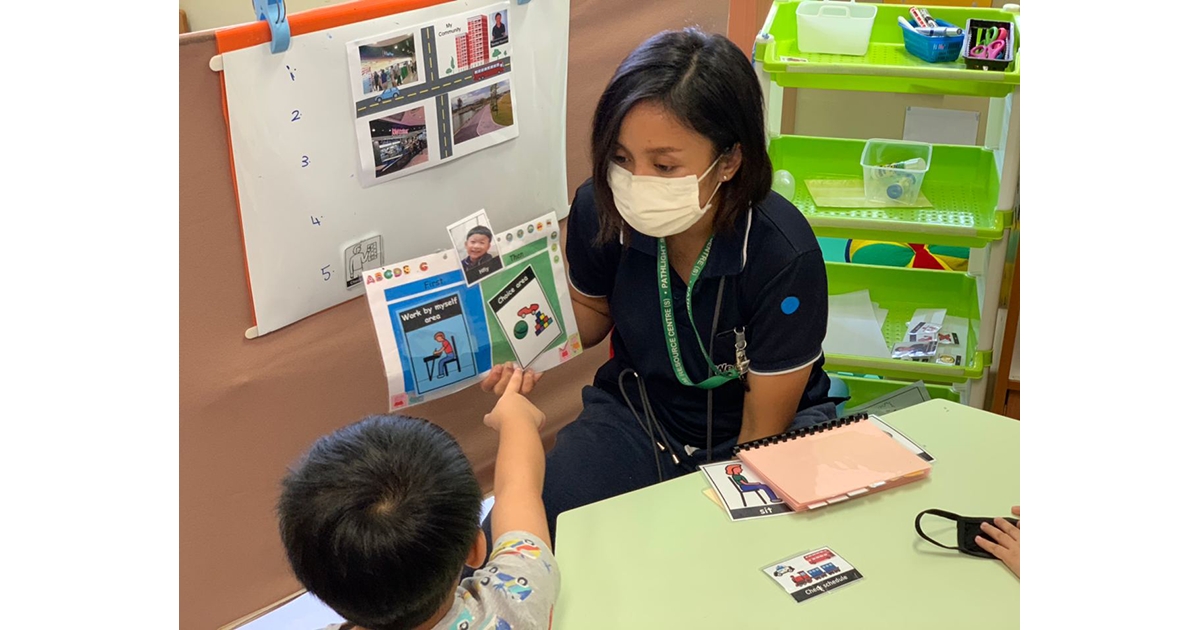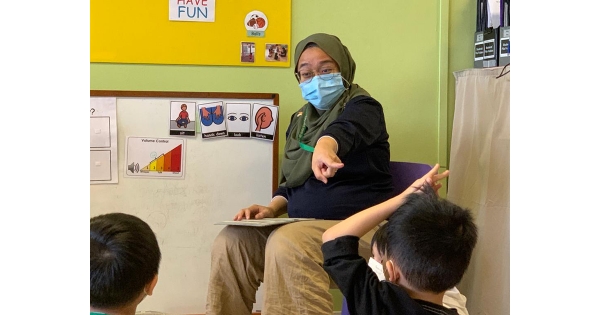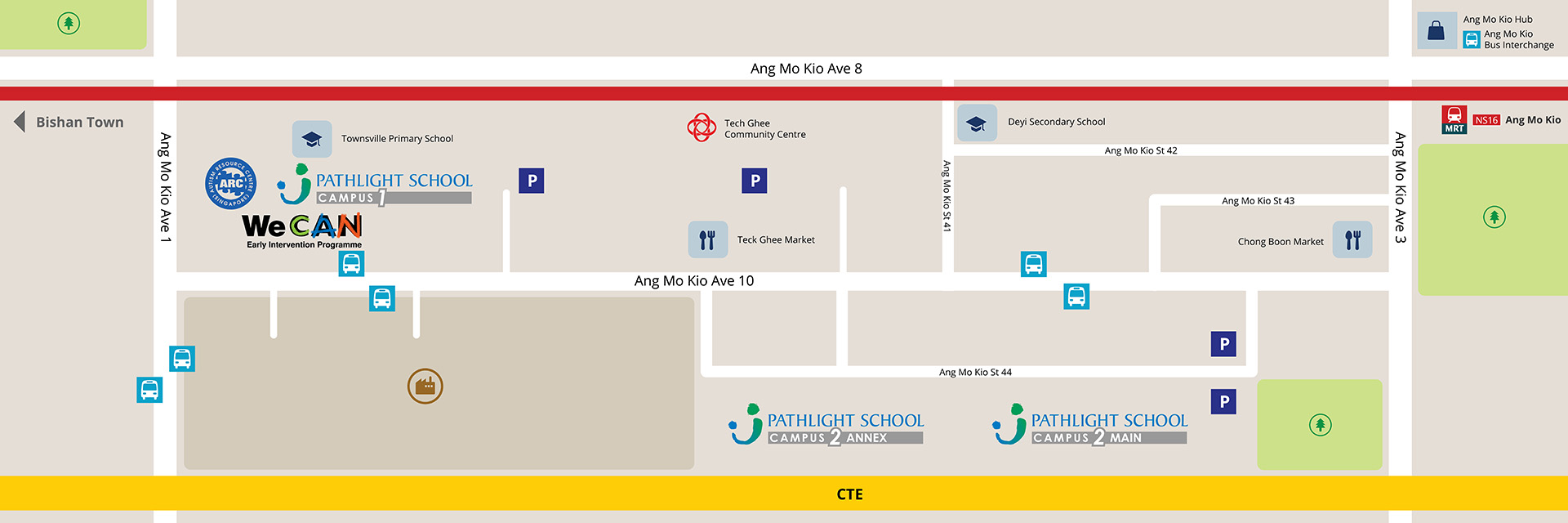Worldwide Collaborations on Autism Needs Early Intervention Programme.
The emphasis of autism early intervention programme is:
- To provide a highly supportive teaching environment
- To encourage and facilitate generalisation opportunities
- To establish core skills in a highly supportive learning environment
- To systematically generalise skills to more complex and natural environments
- To ensure consistency in expectations, methods and reinforcement across home/classroom environments, and amongst all caregivers in the intervention team
We believe that children with autism learn best in a secure and predictable environment, and are taught by people who display genuine care and creativity in all aspects of learning. Odd behaviour is viewed as an opportunity to analyse "Why does a child do that?" and help them develop more conventional or appropriate skills to communicate, learn and function within a social world.
Skill selection is based on the premise of working through strengths, (such as visual skills) to facilitate weaker areas (such as auditory/verbal skills). Intensity of intervention and multiple opportunities to practice newly learned skills are a cornerstone of the WeCAN EIP. Outcomes are measured in terms of independence and the meaningful, functional application of skills in a variety of contexts, with different people, and with different materials.
Any child who is aged 6 years old and below and diagnosed with autism or related conditions, can apply for WeCAN EIP.
Generally, a diagnosis of ASD is required for application. However, in situations where a diagnosis is pending, a clinical report from the child's pediatrician from a local hospital is necessary for application purposes.
We are happy to receive all relevant reports. If reports submitted do not cover our information in our key admission areas, parents may be asked to undertake additional assessments in Singapore.
The Ministry of Social & Family Development (MSF) together with Community Chest (National Council of Social Service) only fund children who are Singapore citizens or permanent residents. Priority will be given to Singapore citizens and permanent residents.
Children are recommended to the ARC(S) early intervention programme after a Needs Assessment conducted by the centre's assessment team.
Placement in our programme takes into consideration the following variables:
- Your child's assessed intervention priorities
- Co-existing service goals and methodologies
- Availability of a placement according to child's level of support need
- Carer agreement to participate in WeCAN EIP according to programme specifications
Where children are recommended to our programmes, but no vacancy exists, a waiting period of between 6-18 months may ensue.
Parents are invited to participate in individual sessions and small group learning in the following ways:
- Through parent/teacher conferencing
- Classroom participation. This process involves the carer attending the class on a negotiated day and time, working together with the teaching staff on a variety of learning activities with their child and other children in the class
- Ongoing parent-teacher communication
- Compulsory parent training programmes to equip parents and carers with relevant skills
The WeCAN Early Intervention curriculum has an autism-specific curriculum involving skill training and facilitation in the following key areas:
- Work Habits
- Self Regulation
- Functional Communication
- Instrumental Social Skills
- Curriculum Skills
- Life and Leisure Skills
- Social Relationship Skills
The curriculum is developmentally appropriate and individualised to meet the assessed needs of each child.
A different theme is adopted each term to enable meaningful learning through a variety of materials and contexts to aid generalisation.
A structured learning environment provides a balanced schedule of preferred and non-preferred activities, involving 'on seat' and 'off seat" activities. New skills are taught in highly structured direct teaching sessions, and generalised to Independent 1:1, pair and small group work contexts as appropriate.
All children with autism display unconventional or socially unacceptable behaviours during their early stages of development. Difficulties in communicating, difficulties in waiting, anxiety, and difficulties coping with change are just some of the triggers for such behaviours.
We adopt Positive Behaviour Management steps as follows:
- Analysing triggers to the child's behaviour
- Understanding the antecedents and consequences of the behaviour
- Adding meaning through structure and visual supports
- Establishing pro-active and consistent routines
- Teaching skills to provide appropriate alternatives to inappropriate behaviour
- Providing other elements of good planning for behaviour management into the programme goals and classroom design (i.e. a 'safe' place; regular opportunities for physical exercise; modulation & relaxation techniques; addressing sensory issues directly; using a team approach to add perspective in Functional Behaviour Analysis)
Yes. Carers are required to undertake a specified number of recommended training sessions per year. A schedule of training sessions will be posted in the term newsletter. Parent participation is recorded to ensure compliance with WeCAN EIP partnership contract conditions.
Parents will be required to registered to register and pay for the training.
Each EIP staff is required to learn all aspects of autism programming, and to be a good role model for the methods being used in our programme.
Teachers are selected to work in our Early Intervention Programme because they are committed team workers, demonstrate a sense of humour, and are willing to keep updating their skills and knowledge to better service the children they teach, and the families that they support.
New Teachers who are hired need to undergo a 6-month intensive training period and co-teach children under close coaching by a senior teacher / coach. As soon as the teachers become more competent and independent, they will transit to an independent case load. Regular coaching is continuous at all levels of teaching staff.
ARC(S) also has a Training and Consultancy arm that provides autism training. All teachers are required to attend autism certification training provided by ARC(S).



